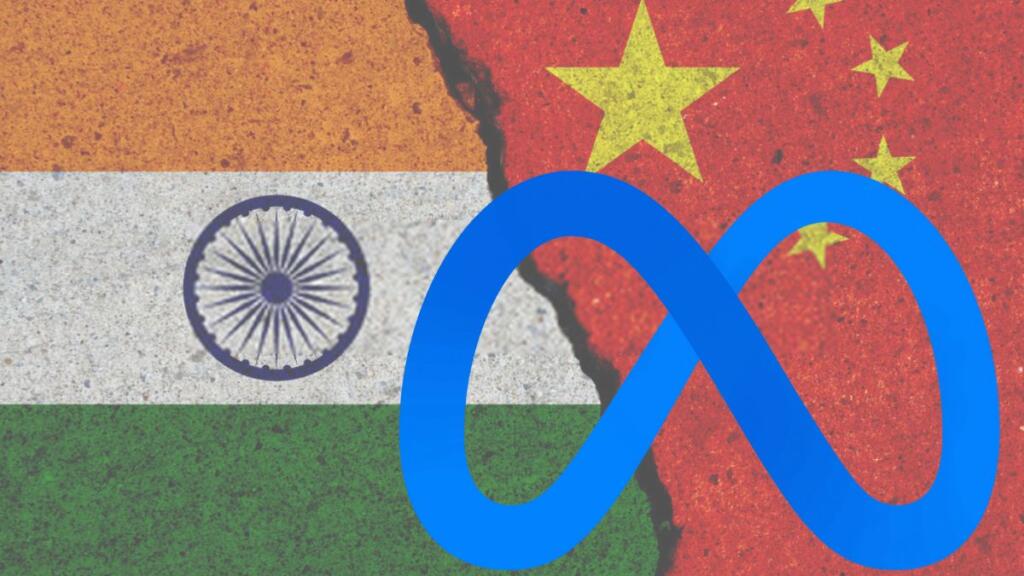Meta, the parent company of Facebook, Instagram, Threads, and WhatsApp, has dismantled a network operated from China aimed at promoting Khalistan sentiments among Sikh communities in several countries. This network targeted regions including Australia, Canada, India, New Zealand, the United Kingdom, Nigeria, and Pakistan.
Scope of the Operation
Meta’s investigation revealed that the network managed 37 Facebook accounts, 13 Pages, five Groups, and nine Instagram accounts. Additionally, it used other social media platforms like Telegram and “X” (formerly Twitter). Investigators discovered that this network was also connected to activities previously identified in 2023, which spread misinformation affecting India and Tibet.
Modus Operandi
The network’s strategy was to amplify content using fake accounts, making their campaign seem more popular. This operation involved compromised accounts posing as Sikhs to post content, manage Pages and Groups, and create a fictitious activist movement called Operation K. This movement called for pro-Sikh protests in places like New Zealand and Australia. The posts were in English and Hindi, covering news, current events, and topics like the Khalistan independence movement, floods in Punjab, the global Sikh community, and the assassination of Hardeep Singh Nijjar. They also criticized the Indian government and used manipulated images or AI-generated content.
Reach and Impact
Approximately 2,700 accounts followed these pages, over 1,300 accounts were part of the groups, and fewer than 100 accounts followed one or more of the Instagram accounts.
Pakistan-China Collaboration on Khalistan
Pakistan’s Inter-Services Intelligence (ISI) and China’s Ministry of State Security (MSS) have a long history of collaborating on anti-India projects. China provides technology while ISI, familiar with the language and culture, creates content for project “K2″—an abbreviation for “Kashmir-Khalistan” aimed at stirring unrest in Kashmir and promoting Khalistan elements.
ISI has a dedicated team led by a major-rank officer to handle Khalistan-related activities in India and globally. Last year, retired Pakistan Army officer Aadil Farooq Raja revealed how ISI funded and supported Khalistani armed groups in India and facilitated the entry of drugs and fake Indian currency notes into India. Raja commented on the killing of Khalistani Commando Force (KCF) chief Paramjit Singh Panjwar, who was given a new identity by ISI and killed in Lahore. Raja criticized ISI for failing to protect Panjwar and claimed that the Indian intelligence agency, R&AW, executed the operation.
Financial and Propaganda Links
Sources disclosed that Panjwar received monthly payments from MSS. Raja noted that Panjwar was instrumental in maintaining KCF’s operations, linking handlers and drug peddlers between India and Pakistan, and using Radio Pakistan to spread Khalistani propaganda. Panjwar’s involvement in drug distribution and the Fake Indian Currency Trade (FICN) was crucial for funding Khalistan activities.
Regional Implications
In April, Indian officials tracking developments in the Northeast reported that Pakistan’s Chief of Army Staff, General Asim Munir, was instructed by Chinese agencies during his visit to China to apply pressure on India in the Northeast, particularly Arunachal Pradesh. Following this visit, the ISI’s Dhaka desk became highly active, indicating heightened regional tensions.
Ongoing Threat
Meta’s uncovering of this network highlights the extensive and coordinated efforts between Pakistan and China to promote Khalistan sentiments and destabilize India. The dismantling of this network is a significant step, but it underscores the ongoing threat posed by such operations and the need for continued vigilance.
Broader Implications for Social Media
This revelation also sheds light on the broader implications for social media platforms. It highlights the need for stringent monitoring and swift action against networks spreading misinformation and promoting divisive agendas. Social media companies must invest in advanced detection technologies and collaborate with global authorities to prevent such activities.
Importance of Cybersecurity
The discovery emphasizes the importance of robust cybersecurity measures. Nations need to prioritize securing their digital landscapes against foreign interference. Collaborating with technology companies and enhancing cyber intelligence capabilities are crucial steps to counteract these threats.
Conclusion
The dismantling of the China-operated network promoting Khalistan is a crucial development in the fight against misinformation and foreign interference. However, it also highlights the ongoing challenges in maintaining the integrity of digital platforms and the need for constant vigilance. The collaboration between Pakistan and China in such activities remains a significant concern, necessitating a concerted global effort to address these issues.
ALSO READ: Khalistan or Money: What’s wrong with quick fame Punjabi singers?
